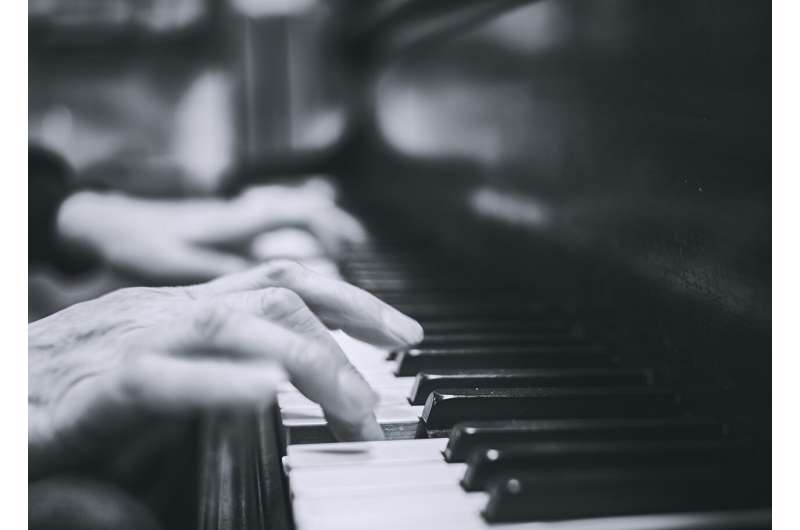New approach in music therapy to help trace change in depression

Researchers have proposed a new way of harnessing music therapy for the diagnosis, assessment and monitoring of depression.
The study, by researchers at the University of York and the Royal College of Music, focused on the significance of "phatic" behaviors in improvisational music therapy—a form of therapy during which a client and a therapist interact by making music together.
Phatic behaviors in conversation can include small-talk, interjections and gestures which put the other person at ease and strengthen social bonds and understanding. These behaviors can change during depression in a range of ways such as longer pauses within a speaker's turn, a drop in rate of speech, an overall fall in vocal pitch and a reduction in eye contact.
The researchers suggest that similar communicative behaviors exist in improvisational music therapy.
Improvised music
Changes observed in behavior, such as vocal pitch and physical movements, during these musical interactions could provide identifiable and robust markers of an individual's mental state and help therapists to diagnose and monitor depression in clients.
Dr. Sarah Knight, from the University's Department of Psychology, said, "Under the blanket term of depression, people have very different needs and manifestations. We wanted to find a way to trace change over time both for different client groups and for therapists from a range of backgrounds.
"We are hopeful this approach of monitoring changes in a systematic way is something that could be applied more generally as part of the framework of care that therapists provide."
Care framework
Dr. Neta Spiro, from the Royal College of Music, said, "We propose that this approach could lead to a useful tool that would complement the interpersonal and individualized care at the heart of music therapy."
The researchers acknowledge that more work is needed before this approach could be implemented, particularly detailed exploration of behavioral data and rigorous testing, but they point out that smartphones and other digital devices make it possible to capture and analyze relevant behaviors, such as vocal pitch and physical movement, without investing in sophisticated recording equipment.
The research is published in the journal Musicae Scientiae.
More information: Sarah Knight et al, Tracing change during music therapy for depression: Toward a markers-based understanding of communicative behaviors, Musicae Scientiae (2022). DOI: 10.1177/10298649221116024



















